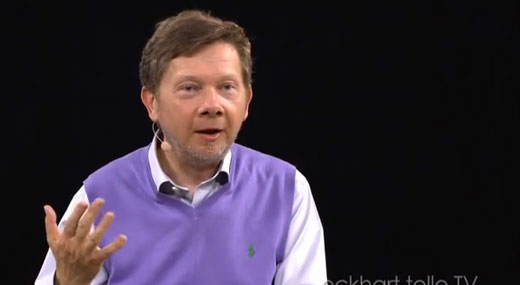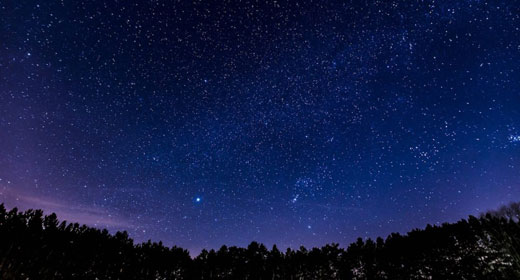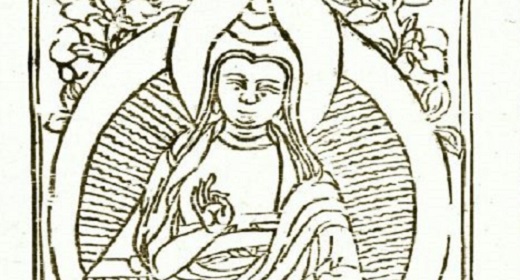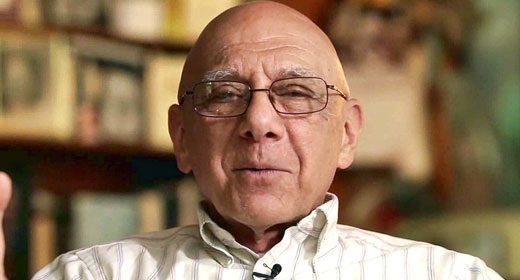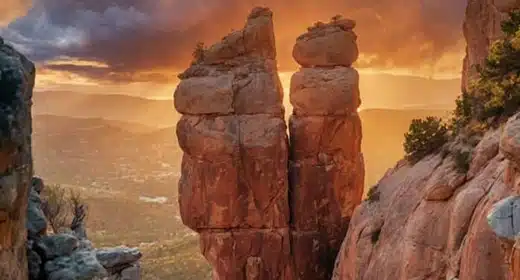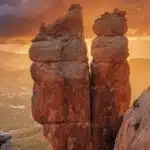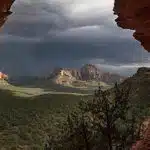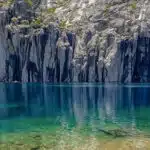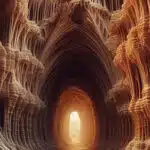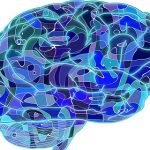by Will Shonbrun: I believe that the conditions that govern the lives of human beings on Earth are not optimal for the full flowering of that individual…
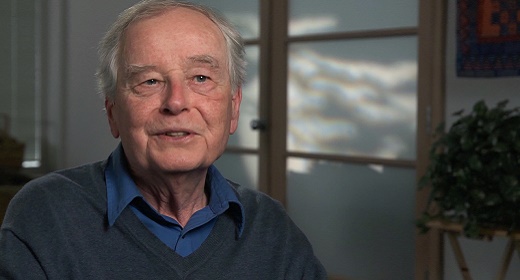
This is both to state the obvious and to then argue its validity, but what’s needed first is a definition or description of what is meant by “full flowering.” While it’s a somewhat poetic and also metaphorical use of language, what I mean by it is much more practical.
A human life needs to have in it certain conditions, which give that life, that person, those things – ingredients – that make that life a worthwhile and enjoyable experience. We’re all familiar with those things that comprise the basics of a “good” life so there’s no need to belabor the obvious. Then there are the less tangible, more ideological or conceptual things like love, fulfillment, achievement and (perhaps) spiritual devotion and so on as discussed and outlined by psychologist Abraham Maslow (hierarchy of needs) and others. So we know that having just the basics is not enough though fundamentally necessary for life to be a desirable experience on the whole. But once or if these basics are satisfied the human needs the circumstances or possibilities for experiencing life to a greater and more fulfilling degree. This is what is meant by “optimal.”
C.G. Jung called the transformation of the individual, individuation, and it signified the growth of an individual, to paraphrase psychologist Ralph Metzner, “physically, perceptually, emotionally, mentally and spiritually, toward an integrated wholeness.”
In common parlance this means for an individual to become all he/she can be, not in the military slogan sense, but as in tapping into and activating all the aspects within one’s potential or all parts of oneself one becomes conscious of.
It’s the premise of this conversation that humankind is not fulfilling its potential for self-knowledge, self-understanding and wholeness, and proof positive of this is a hard look at the status of the human population on Earth in terms of peaceful coexistence, and an end to war, starvation, poverty, exploitive domination and wanton aggression.
Humans have made some progress along these lines, but the human potential to wholeness, which, it’s argued, would bring about the cessation of those conditions just listed, seems not to have been nearly reached.
So that’s the premise: that while we (humans) are on an evolutionary path toward greater consciousness – awareness of life in all its complexities – we’ve not gotten very far in correcting those conditions that divide humans and set them against one another. We are still and even more so adept at destroying one another and the world we inhabit than ever in history and could even effectively destroy or alter life on the planet for eons to come.
Introduction
So if one accepts the premise or thesis of this pursuit then it logically holds that there are answers to the predicament humans are not only in and have for the most part generated, but it remains, who are those who might have some of the answers to the fundamental problems already delineated?
I think that the answers exist and I believe that there are thinkers among us who know the great problems of the day, of our time, which are caused at the root by the human condition, and who can point to the stalled growth of answers and solutions. The big trick is to do it and be heeded before humankind summarily does away with itself through war, pollution, starvation and depletion of life’s resources.
Anyway, that’s the game afoot.
Which brings me to introducing my friend, Ralph Metzner, to the reader. If I were to give it a formal introduction it would look as follows.
Ralph Metzner, Ph.D., is a psychologist, writer and researcher who has been exploring and writing about human consciousness for over 50 years. Dr. Metzner has a B.A. in philosophy and psychology from Oxford University and a Ph.D. in clinical psychology from Harvard and has authored 15 books on the study of consciousness and a 7-volume series, The Ecology of Consciousness (2008-2013). He is well known as a pioneer in the study of the psychedelic experience since his early work in the 1970s with Timothy Leary and Richard Alpert (later Ram Dass) on the Harvard Psilocybin Projects and was the Academic Dean for ten years at the California Institute for Integral Studies in San Francisco. He is the co-founder and President of the Green Earth Foundation, a non-profit educational organization devoted to healing and harmonizing the relationship between humans and the Earth. He maintains a part-time psychotherapy practice and conducts workshops on consciousness transformation, nationally and internationally, and graciously agreed to do this interview. Dr. Metzner’s prolific work can be accessed at: www.greenearthfound.org).
By calling Ralph a friend I don’t mean to imply that we are old or close friends, though we’ve known each other 20+ years, nor are we colleagues. While we live in the same area of the Sonoma Valley in Northern California we rarely see one another, not more than once or twice a year I’d guess. I’ve known about some of Ralph’s work for many years and on occasions when circumstances have brought us together I’ve always enjoyed out interactions.
None of that is terribly relevant to his and my discussions of his book, The Expansion of Consciousness, (Revised Edition), which is the jumping off place and a focus of our conversation. It’s only by way of saying that the first person I thought of for engaging in this kind of dialogue was Ralph Metzner.
In my view, Ralph Metzner, is more than a person of considerable knowledge in his field and related ones, but through his scholarly pursuits and very specific experiences in life deeply exploring the realms of human consciousness, I think he holds valuable wisdom for getting to the answers it is suggested we desperately need.
A Conversation
WS
In your book, “The Expansion of Consciousness (Revised Edition)”, you trace the “transformations of collective consciousness” from 1945 to 2001 – breaking it into 7-8 year segments or “octaves” – through examining global and U.S. politics and the significant events arising in those time periods, and then including the “culture, science, technology and psychedelics” developed and established within those “octaves” or short time frames.
Again, your focus is upon the phenomenon of human consciousness, what you refer to as, “the collective psyche of humanity”, which in turn forms our (humanity’s) world-view – “the model of reality and of social relations…” commonly accepted. Within the frameworks you’ve constructed, consciousness either expands or contracts.
Is that a fair or accurate albeit very truncated analysis of the thrust of your book? Please elucidate.
***
RM
In my thinking, I follow Freud, Jung and some of his followers, in distinguishing apersonal unconscious layer of the psyche, made up of personal images, thoughts, memories, etc; then a layer of cultural unconscious, consisting of thoughts/images etc, shared by a whole group; and a collective unconscious layer, made up of thoughts/images etc shared by all of humanity, also called archetypes. All of these “layers” and the clusters of thoughts/images co-exist in everyone in various ways. For example, an individual or a story or a film or a dream may carry an image of the person’s “mother” combined with image of the Catholic Mary, and the Great Mother archetypal cross-cultural image.
While I keep the idea of these layers, I don’t however use the term “unconscious”, since, from a psycho-linguistic point of view, if you call something “unconscious” then that tends to keep it unconscious. After all, if you think about it, or paint it, or write a story about it, or listen to music about it – it’s not unconscious. I think of these thought-image clusters like icebergs floating in a sea of awareness, partially submerged, and we’re constantly exploring them, recognizing them as they rise up into awareness.
One could say perhaps, with Freud and Jung, that most of the thought/image patters that guide our lives are unconscious, i.e. we’re not aware of them. The Eastern philosophies of both Hinduism and Buddhism are consistent with this approach: They say the basic concept is avidya – not knowing, or non-consciousness.
In Expansion of Consciousness (in particular Part II of that book) I focus on collective thought-image-perception patterns and movements triggered by or reflected in outer historic events. I chose the period 1945 – 2001 as the focus of this analysis of changes in collective consciousness. One can break that 55-year period down further into seven steps of 7-8 years each – using an octave system, as advocated by Gurdjieff and Ouspensky, among others. This is a kind of analytical model that seems to fit the historic events in a more interesting and insightful way than just saying one thing happened and then another thing happened, and here we are, what do we do now? In particular, I argue, in that book, that the movement of the society/culture after the end of the WWII was progressive and peace oriented, and then starting with the JFK and other assassinations of leaders in the 1960s, started on a downward death-spiral, from which we have not recovered and it doesn’t look like we’re even moving in that direction.
Now, the notion of expansion and contraction of consciousness is a different analytical framework than the above. Our personal states of consciousness are constantly moving through different phases – waking state, dreaming, sleeping, meditating, drug states, alcohol states, states of anger or fear … some expansive, some more focused, some intentional, some not. I talk about these different changes in detail in my bookMindSpace and TimeStream. This book deals with individual states of consciousness. I don’t use those concepts in looking at changes in collective consciousness, although one could, I suppose. In a very general way I would say that the 1960s were a period when the collective images and thoughts of a whole society were going through an enormous expansion of creativity in so many areas – even though particular individuals were of course always going through various intentional and unconscious expansive and concentrative changes.
***
WS
As you note often in your book The Expansion of Consciousness, a glance at humankind today shows a world on the brink, perhaps on the edge of collapse or at the very least profound change of the very atmosphere and climate of the Earth and the major shifts this will presage in the geography of the planet itself and how these inevitable impacts will affect human societies and cultures and their relationships.
Like the splitting of the atom in the 1940s and the developing of nuclear weapons changed the world’s history of human life upon it – total destruction of most of mankind’s creations into a planet poisoned by radiation that would affect all sentient life on it for eons – global warming today is a universal game-changer. It will deeply affect the food and water supply of human and animal life, the world’s oceans, and immeasurably alter the planet’s surface land and increase already burgeoning species’ extinction. One could insert a gallows humor joke: If you think it’s bad now, you ain’t seen nothin’ yet.
Trying to encapsulate and describe what mankind faces, primarily by his own hand, is not possible because the repercussions of this change will be of such vast and complicated a scope there is no way to quantify or prepare for it. In short, we are heading toward self-destruction much as with the advent of nuclear weapons.
So it it’s agreed that these dilemmas are of our own making – it surely doesn’t seem to come from outside us – the Big question is: Can mankind undo what which has been done, and where can we look for the answers?
***
RM
You’ve said it very well and one can only agree. There are numerous excellent scientific and journalistic accounts of the many aspects of the excruciating dilemma humankind is facing – and yet we don’t seem to be able to stop this monstrous juggernaut of destruction in which we are involved. Naomi Klein’s brilliant recent book is titled This Changes Everything – Capitalism vs. The Climate, which puts these fiendishly complex issues in an excruciating nutshell.
Historically, we know at many times in the past empires and civilizations have collapsed and social structures broken down, often amidst war and paroxysms of mass violence. Then, after a breakdown of the civilized order, as in the 8th – 10th century Dark Ages in Europe, you had a slow recovery first in the 11th century ProvencalLanguedoc region with its mystical monasteries and exquisite poetry of the Troubadours; then in the 14th/15th century the cultural expansion of the Italian Renaissance. There was a magnificent cultural flowering in the arts and inventions andthere was also the regressive dogmatism of the Church and the torture and murder of millions of so-called “witches” for no other crime than having the wrong belief system.
This is similar to what we have now. Although we no longer burn witches at the stake, we have our own refined ways of torturing and imprisoning people who can’t manage to fit with the cultural norms, or who don’t agree with the edicts of the ruling powers, although not actually hurting anyone or anything. Think Abu Ghraib, etc.
As Ram Dass once said to me as we were both touring an exhibit of art depicting the horrors of wars, disease and poverty in the Middle Ages – “see, nothing has really changed, has it?” People are still doing horrible things to one another; enormous inconceivable suffering exists due to war, poverty, disease, cruelty, neglect…
There is however one big difference to the present time: everything is now global. While Europe was going through its Dark Ages, in the 12th – 14th century, China was going through a fantastic climax of civilization – with flowering of the arts, sciences and inventions. Now all parts of the globe are overlaid by this media-screen. Everything going on anywhere can instantly be known by anyone and everywhere. The impoverished street urchins in Bombay can have their cell phones to conduct their business and so can the rural farmers in Central Africa. Now, as before, great empires seek to control land, the seas, the air with their armies, competing for power and wealth.
But it’s important to recognize the crucial difference between the mass of the people and the groups of ruling elites. The overwhelming majority of people just want to live with their families in dignified conditions, earning enough from their labor to raise their children, and contribute something to their community. That’s not a lot to ask really, is it? And it should be easily achievable, if we put our enormous collective human ingenuity to the task. On the other hand, the shared operating program for the ruling elites is to accumulate wealth and power – but only for their group or class, not the wealth and well-being of the general population or the whole society. In my book The Roots of War and Domination, I wrote that
“The game of global capitalism is a game of money and power. There are multiple, overlapping conspiracies and agendas – all revolving around a fateful web of forces that define the elites’ agendas. Some refer to this as the G-O-D triangle, where G = guns and armaments, O = oil and other carbon fuels, and D = drugs and narcotics. Money flows and accumulates around all three points of this triangle, superseding national interest and laws.” (p. 37)
The human interests and concerns of ordinary people with their families, their jobs, their goals and hopes for their children and their futures, are secondary or non-existing for the multinational ruling elites – as members of those elite associations. Of course, the individual members of these power groups may be perfectly “nice people”, who love their families, and so forth.
So to your question “can mankind undo that which has been done and where can we look for answers”, my answer would have to be: We don’t know if civilization will survive this crisis, or if we will re-descend to a level of barbarism, with massive die-off of human population due to starvation and disease, coupled with massive poisoning of the living earth and waters. OR – if various individuals, groups and associations will succeed in salvaging some areas of the planet with a more humane and sustainable civilized order. Or, perhaps as some have suggested, small groups of humans will survive in a colony on Mars. Or, more likely perhaps, as some others have suggested, colonies of humans will learn to survive in under-sea settlements, living in sustainable symbiosis with undersea plant and animal life.
As presently constituted, global civilization cannot survive. It will either collapse or change completely in its key relationship to all other life on planet Earth. Or, perhaps more likely, both things will happen – total collapse of existing power and economic structures, coupled with massive human population die-off – and slow, halting emergence of something new, the outlines of which are barely discernible. How many people in the High Middle Ages could foresee the changes that would come with the Industrial Revolution? And the political changes that came with the French Revolution and with the liberation of the American colonies?
Buckminster Fuller used to say that humankind always tries all the wrong solutions to its problems before finally giving up and deciding to make the changes really needed. Perhaps, and hopefully, this is what’s happening now. Pope Francis, bless his heart, put out an encyclical telling the 2 billion Catholics in the world that overcoming poverty and preserving the environment is a spiritual and religious necessity. And some major business corporations start to change their business models to put preserving the environment and eliminating fossil fuels nearer the top of their agendas. So there are some hope-inspiring trends.
***
WS
We (humans) are technologically advanced to such a degree that we can now leave our planet’s natural bounds, exist in space and on other planets, and explore the cosmos, the mystery from which we and all matter emerged. It’s all happened in about a million years or so. It’s also the blink of an eye in terms of the life of the Earth, but it seems an impressive development in human terms.
And yet as advanced as these science-based developments are, human relations and interrelationships don’t seem to have changed very much since at least recorded history and what we can determine preceded that.
We are quick to anger and irrational behavior. We easily become aggressive and violent. We are selfish and competitive enough so that the balance between haves and have-nots is off the charts. We live by ideologies and belief systems that make no rational or even common sense, we seem incapable of tolerance for differences among cultures for any significant length of time, and we do not seem to even be able to make peace within ourselves. Of course there are exceptions and even some societies in our world where there’s been improvement, but I think in a general sense that these observations to the contrary are founded.
At the same time we have never known more about the human psyche, how our minds work, the intricacies of chemistry and biology and the micro world, and our own study of psychology and human behavior. Why hasn’t our knowledge of self and other developed as remarkably as our knowledge of the outer world? Why are we still exhibiting the behaviors of early mankind yet living in a technologically advanced reality?
***
RM
When you say, “it’s all happened in about a million years or so”, you’re referring, I assume, to the presence of civilized humans on Earth. However, part of the multiple paradigm changes we are undergoing in our worldview, involve very significant changes in our understanding of human origins and the origins of human civilization. Most significantly, the standard view of a gradual step-by-step evolution of humans from hunter-gatherer existence, along with brilliant cave paintings dated to 20,000/30,000 years ago, progressing then to Neolithic village cultures with domestication of cereal grains and animals like sheep and goats – this paradigmatic view has recently been significantly challenged – although, as one can expect, with much disagreement and debate. Two best-selling books by Graham Hancock –Fingerprints of the Gods and Magicians of the Gods – have summarized the world-wide archaeological and cosmological evidence of an ancient world-wide civilization with advanced building technologies that was destroyed by the impact of a giant comet that hit Earth, actually twice – around 12,800 years ago and again 11, 600 years ago. The scientific evidence on this is very strong, although not widely known outside of specialist circles. It provides an empirical basis for the old legends of Atlantis and other lost civilizations.
The jacket of Graham Hancock’s latest book says: “new scientific evidence proves that the earth was hit by a comet 12,800 years ago. The comet broke up into multiple fragments. Some were more than a mile in diameter and hit the North American ice cap, instantly melting millions of square miles of ice and causing the global deluge that is remembered in myths around the world.”
So, high civilizations existed in what we think of as the pre-historic past – with technologies far beyond ours – about which we know nothing except the ruins of their buried structures. These discoveries are analogous on a human collective level to an individual discovering that he or she has a totally repressed memory of high status and understanding followed by traumatic amnesia. Just as our technologies keep revealing to us star systems and galaxies at ever-greater distances and ever-greater size, so our understanding of our own past on this planet is expanding into deeper and deeper times past. As a civilization we may be suffering from species-wide traumatic amnesia – and this could be at least one of the reasons why we don’t seem to be able to get our civilization to function. And the amnesia is starting to be lifted – perhaps just in time.
You say, Will, that “we have never known more about the human psyche, how our minds work”. But as a psychologist I have to say that in contrast to the advances in cosmology, biology and earth sciences, our understanding of the human psyche is mired in outmoded materialist paradigms. Of course, there is always the difference between what some individuals and professional scientists know and say and what are the operating programs of our political and economic systems. Large segments of the population are in panic and denial mode, cowering in fear as politicians and the media stoke those fears for the sake of their power and financial agendas. And ever more segments of the population, particularly in so-called “third world” countries are suffering the real deprivations brought about by the traditional “four horsemen of the apocalypse” – conquest, war, famine and disease. When your children of dying of starvation you don’t have the luxury of time to contemplate the meaning of life.
So my basic response to your third question is that we are living in a tumultuous time of discoveries about the world we live in, the nature of the universe, our history as a species and civilization. All the old paradigms have to be discarded and/or fundamentally revised. We don’t yet know whether these paradigm changes will be adopted soon enough by a wide enough segment of humanity and the ruling elites to prevent a more or less complete collapse of civilization. I don’t believe at all the human species will go extinct – all the data on population growth contradict that. But I tend to think that a massive population reduction from the current 7 billion to about half that number is highly probable within the next couple of hundred years or sooner, along with the more or less complete destruction and inhabitability of large segments of the planet’s surface.
Where that leaves us, I don’t know – but I do know, as a psychologist, that denial of reality is not an adaptive strategy. And concerted, clear-minded appraisal of our situation would be a welcome start.
***
WS
You have made the study of the human psyche and consciousness your life’s work. At an early point in your academic career you discovered the potent ability of certain plants and substances (LSD, psilocybin, MDMA, etc.) to unlock some of the deep mysteries of consciousness. These were not new discoveries, as ancient human societies knew of them and their power of elucidation.
Do you think that the answer to the human dilemma (as outlined) lies behind the doors that are accessed by the judicious and thoughtful use of these substances?
If not then what can you, or anyone that has made the study of human consciousness a life’s work, say to a world in crisis? It’s not just a crisis, it’s the crisis. We are destroying the only world in which we know we can exist and survive and we’ve developed the ability to do just that almost instantly with a nuclear holocaust or more slowly through global climate change. Where do we turn for the answers?
***
RM
We both seem to agree, as indicated by your questions and by my responses, that the status of our civilization is dire indeed. Civilizations have come and gone before, including, as suggested in #3, a global high-technology civilization that was wiped out about 15,000 years ago by a comet and subsequent flooding … so completely buried that even the written records and the memories are gone.
From the point of view of impending possible civilization collapse, not to mention wars, diseases, terrorism etc, questions about psychoactive substances seem almost petty. But I’ll try to summarize what I think would be ideal developments in policy and research – recognizing that actual events may make most of these “impractical” or impossible, but you never can really tell. Things can and do change unexpectedly. Witness the current pope and his initiatives in the Catholic Church.
1.The movements in a number of Western countries and states within the US, towards the decriminalization of cannabis use, both medical and recreational, are highly significant. The scientific consensus is, step by step, becoming the societal consensus: cannabis is a valuable medicinal substance for many conditions, some of them serious, and a relatively harmless recreational substance, certainly compared to alcohol, which is a societal disaster. State prohibitions are falling and numerous and varied uses of the hemp plant, stand to make significant boosts to the economy of several US states. Parallel changes in many, though not all, Western countries. Getting the substance out of the criminal justice system and moving it instead into the public health system, to be regulated as such – will be the de-criminalization of “crimes without victims” which would be a very positive societal move, akin to the abolition of the death penalty.
2. At the policy level, issues of drug abuse of cannabis or any other drug should be handled as public health issues. Legal access to a recreational drug, would take huge profits out of international gangs, and instead put livelihoods, economies and markets into the hands of people and entrepreneurs.
3. The classic psychedelic, entheogenic and empathogenic drugs should be and will continue to be investigated for their immense potential benefits. Research should focus on the most needed and most promising applications. We don’t need to endlessly repeat “double-blind placebo controlled” studies, which are pointless. They are designed so that drug companies can prove that the new drug they want to introduce and patent is a little bit better than the existing drugs. But that’s not at all the situation for psychedelic drugs – here we are in the exploratory stage. The safety factors and absence of harm were already established in the 1960s, and don’t need to be endlessly repeated. Physicians should be allowed to use the most promising substances for the following most significant and promising areas.
4. The use of MDMA in the treatment of trauma, especially war trauma – where there are thousands of veterans committing suicide for lack of access to effective therapies. But doctors and therapists need to be trained in their use and they have to recognize that it’s essential that treating therapists have personal experience with these substances. This is totally unlike the situation with standard medications, e.g. you don’t need the doctors to have experienced Valium, before prescribing it to patients. But it’s both unscientific and unethical, in my opinion, for a practitioner to give a mind-expanding drug to anyone if they have not experienced that mind-expanding drug themselves
5. The use of psilocybin (psilocybin is better than LSD because it doesn’t last as long) in helping people prepare for dying. The dying process is not a medical condition that some people get and others don’t! It’s a fundamental fact of our existence on this Earth, to which everyone is subject. Anxiety around it is universal, especially since the role of traditional religious beliefs has so massively declined. Conscious and intentional preparation for the final transition is in general very sparse and limited to some religious communities – and may not be accessible or believable for everyone. It was Aldous Huxley’s idea, expounded in his visionary novel Island, that there could communities or settings where psychedelics were used in a sacramental way that acknowledges the right of each person and or family to choose and formulate their own end-of-life practice. There’s no need to “prove” anything, there are no criteria of efficacy. The purpose is simply to support the person’s dying with less pain and less fear. This application would fit readily within the burgeoning “right-to-die” movement. Dying, basically, is not a medical condition that needs to be cured (although sometimes those exist). People can die, normally and peacefully, in bed at home. And those suffering from incurable illness and intractable pain should be allowed to choose the manner of their exit, with or without psychedelics. The medical-pharmaceutical-insurance complex fights against the right to choose death – because once you’re dead you are no longer paying the fees.
6.Psychedelic or consciousness expanding drugs are the natural antidote to the consciousness contracting conditions involved in addictions, compulsions, obsessions and the like. Already in the 1960s, there were half-a-dozen alcoholism treatment centers in North America where LSD was used to treat chronic alcoholism, with AA providing a background support system (with its brilliant definition of spirituality as “a higher power however you conceive it”). Here the drugs are or should be integrated into an ongoing alcoholism treatment program with ongoing group support.
7.Ibogaine, derived from an African ceremonial plant, has proven enormously successful in the treatment of drug addictions of all kinds. Because the fatality rate is high among drug addicts in withdrawal, and the drug is long off patent, there is zero interest in mainstream medicine or public health. However addiction treatment centers with ibogaine exist in Mexico, Holland, Costa Rica and other places. This should be extended and supported, considering the enormous social costs of drug addiction.
8.From the point of view of practical politics I think the most significant application would be in the treatment of alcoholism – which we know is a huge and expensive problem in the US and other countries. What’s needed would be an extension of the standard alcoholism treatment model. People could check into a two-week long stay in a clinic for destocks, medical and nutritional support, group therapy, individualized plans, etc. One can envision that one or two sessions with MDMA and/or psilocybin, optional of course, could be built into such a program. Here too, doing it in Mexico, across the border from California, would make it more convenient and accessible, and probably not encounter as many regulatory hurdles, as would be in the US. If not in the US, progressive-minded bureaucrats in other countries – Canada, Mexico, Netherlands, Israel and elsewhere could further such initiatives – and this may already be happening.
***
Conclusion
This concludes a conversation with Ralph Metzner about his book,
The Expansion of Consciousness and his reflections on questions that touch on the most profound problems we face for our survival, our existence as a species. However it is only the first conversation I hope to have with other notable thinkers in search of answers I believe we must find before it is too late.
Will Shonbrun writes political commentary, was co-founder of the North Bay Progressive newspaper and currently lives in Sonoma California.

